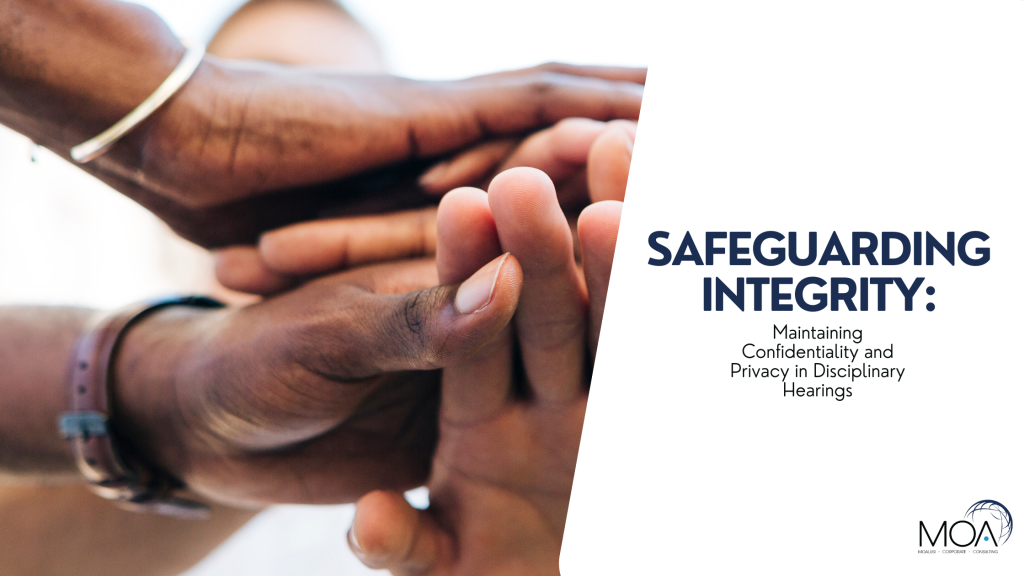In the realm of human resources, disciplinary hearings are crucial proceedings designed to address workplace misconduct while upholding fairness and due process. Central to the integrity of these hearings is the preservation of confidentiality and privacy, ensuring that all parties involved are treated with respect and dignity. In this blog post, we\’ll explore the significance of maintaining confidentiality and privacy in disciplinary hearings and offer guidance on how HR professionals can uphold these principles effectively.
Why Confidentiality and Privacy Matter:
Confidentiality and privacy are foundational principles that underpin the trust and credibility of disciplinary hearings. By safeguarding sensitive information and respecting the privacy rights of employees, HR professionals demonstrate their commitment to fairness, impartiality, and procedural integrity.
Key Considerations for Maintaining Confidentiality and Privacy:
- Secure Communication Channels: Utilizing secure communication channels, such as encrypted email or password-protected documents, can help prevent unauthorized access to sensitive information related to disciplinary hearings. HR professionals should also avoid discussing confidential matters in public spaces or over unsecured communication platforms.
- Confidentiality Agreements: Implementing confidentiality agreements or nondisclosure clauses can provide an additional layer of protection for sensitive information shared during disciplinary hearings. These agreements outline the expectations for maintaining confidentiality and the consequences of unauthorized disclosure.
- Anonymous Reporting Options: Offering anonymous reporting options can encourage employees to come forward with concerns or allegations of misconduct while preserving their confidentiality. HR professionals should ensure that anonymous reports are handled with sensitivity and discretion to protect the anonymity of the reporter.
Best Practices for Conducting Confidential Disciplinary Hearings:
- Private Setting: Conducting disciplinary hearings in a private setting, away from the view and hearing of other employees, is essential for protecting the privacy of all parties involved. This ensures that sensitive information remains confidential and minimizes the risk of reputational harm or undue influence.
- Confidential Documentation: Maintaining accurate and confidential documentation of disciplinary hearings is critical for record-keeping purposes and ensuring transparency and accountability. HR professionals should securely store disciplinary records in compliance with data protection regulations and organizational policies.
- Fair and Impartial Process: Upholding fairness and impartiality throughout the disciplinary process is essential for maintaining trust and credibility. HR professionals should ensure that all parties have an opportunity to present their case, respond to allegations, and provide evidence in support of their position.
Conclusion:
In conclusion, maintaining confidentiality and privacy in disciplinary hearings is paramount for upholding the integrity and legitimacy of the process. By adhering to best practices and respecting the rights and privacy of all parties involved, HR professionals can ensure that disciplinary hearings are conducted with fairness, transparency, and respect for the dignity of every individual. Ultimately, safeguarding confidentiality and privacy reinforces trust in the disciplinary process and contributes to a culture of accountability and fairness in the workplace.

